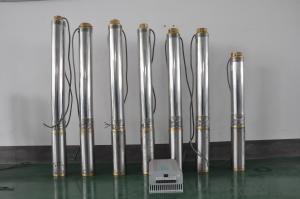Deepwell solar water pump
- Loading Port:
- Shanghai
- Payment Terms:
- TT OR LC
- Min Order Qty:
- -
- Supply Capability:
- 300 set/month
OKorder Service Pledge
Quality Product, Order Online Tracking, Timely Delivery
OKorder Financial Service
Credit Rating, Credit Services, Credit Purchasing
You Might Also Like
how is the rotor made:
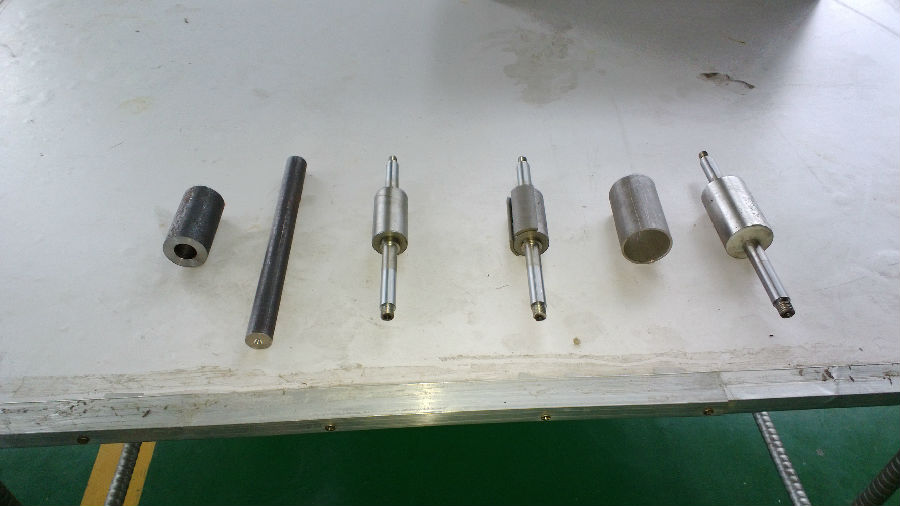
how is the motor made:
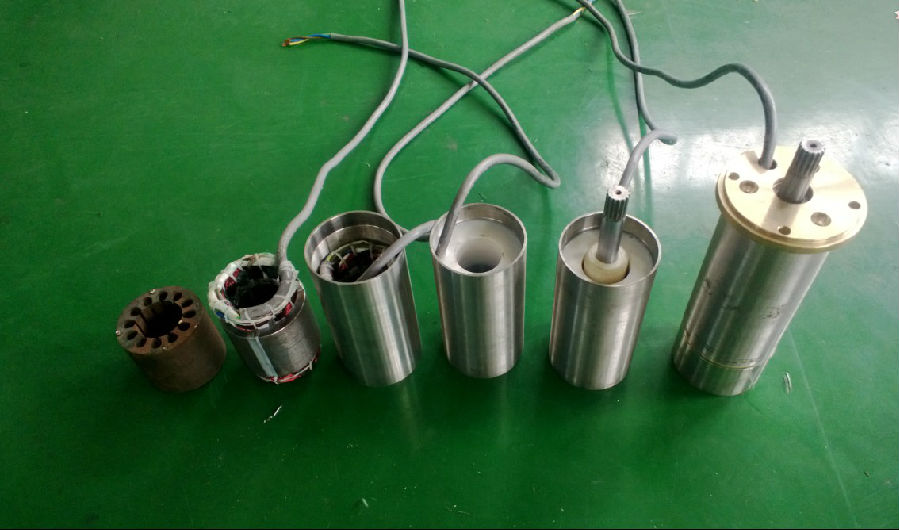
the pump :
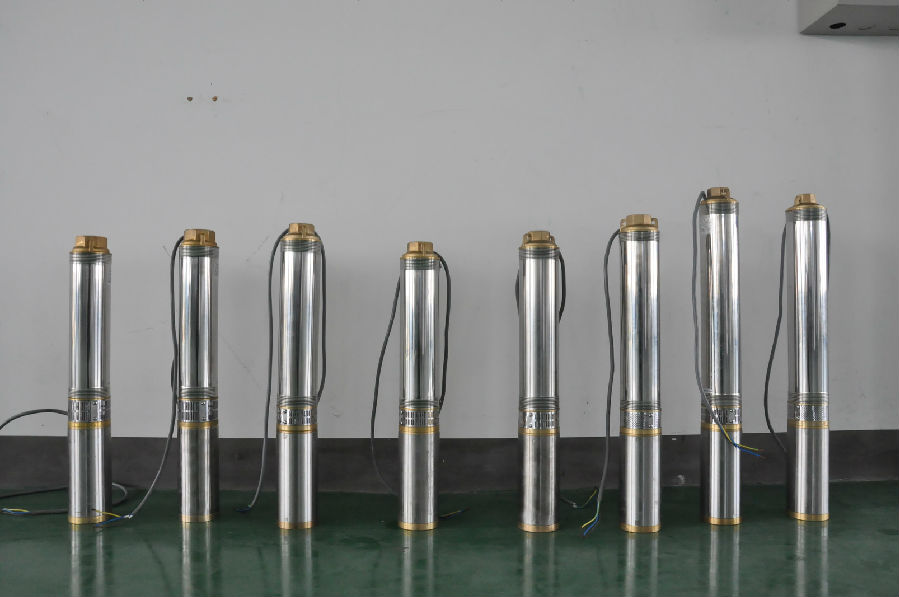
controller terminal connection:
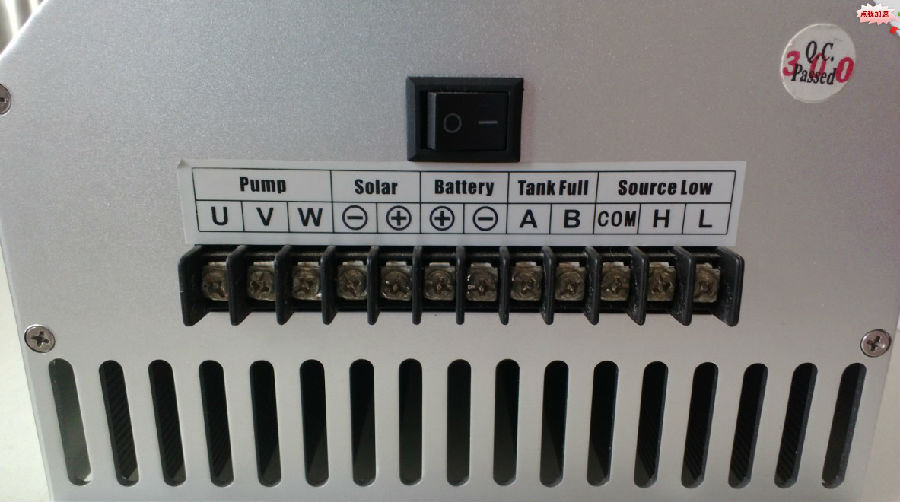
The permanent magnet:
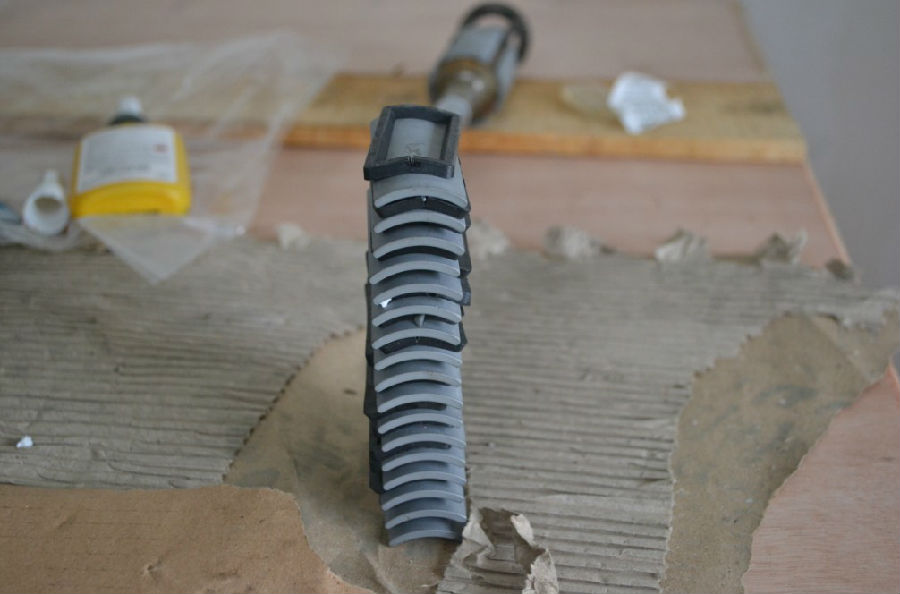
the impeller:
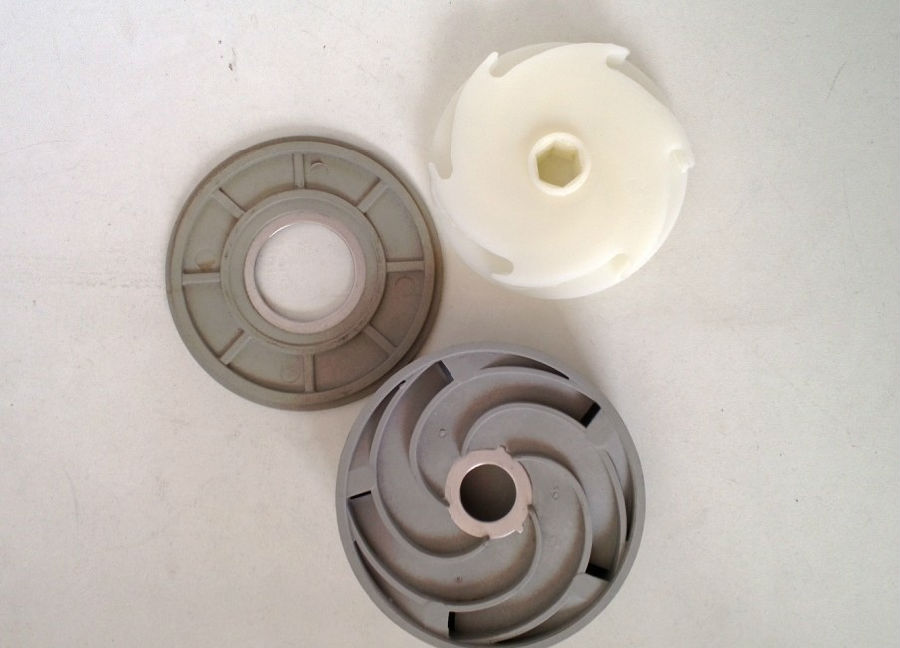
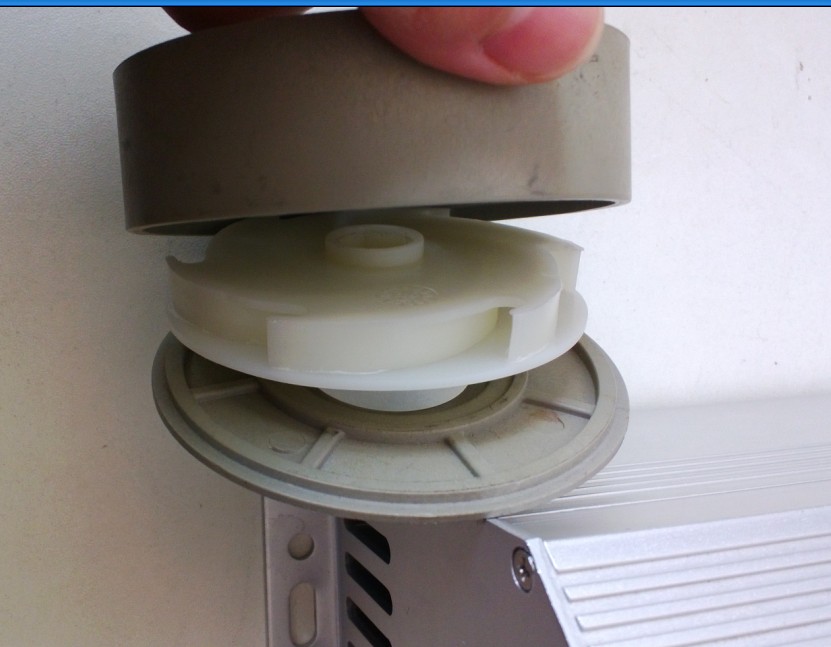
controller box:
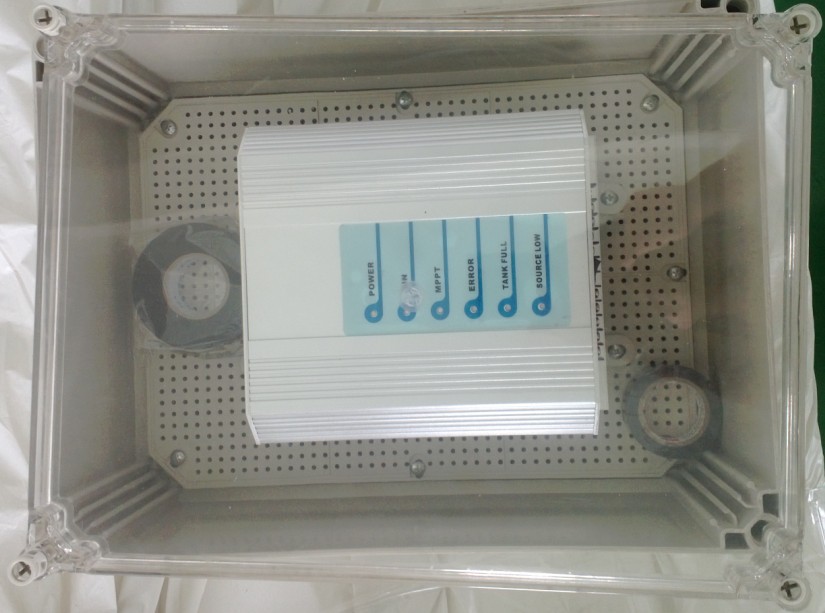
the senors:
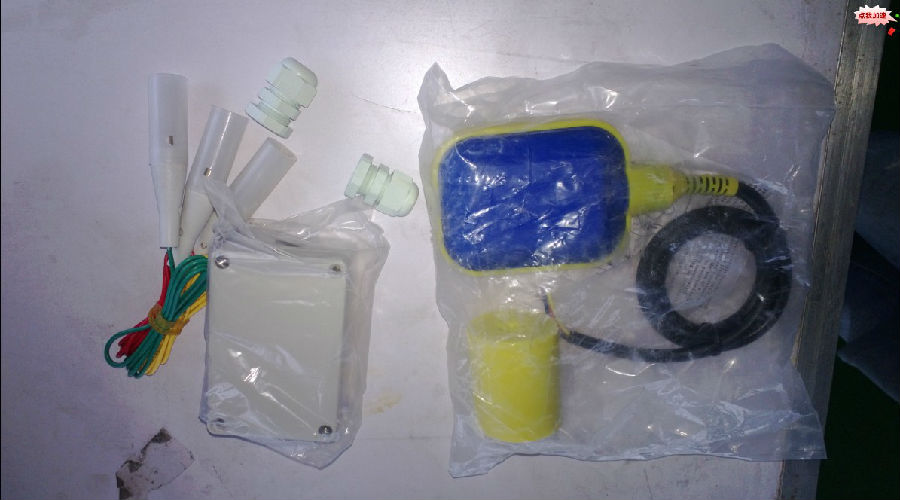
the test:
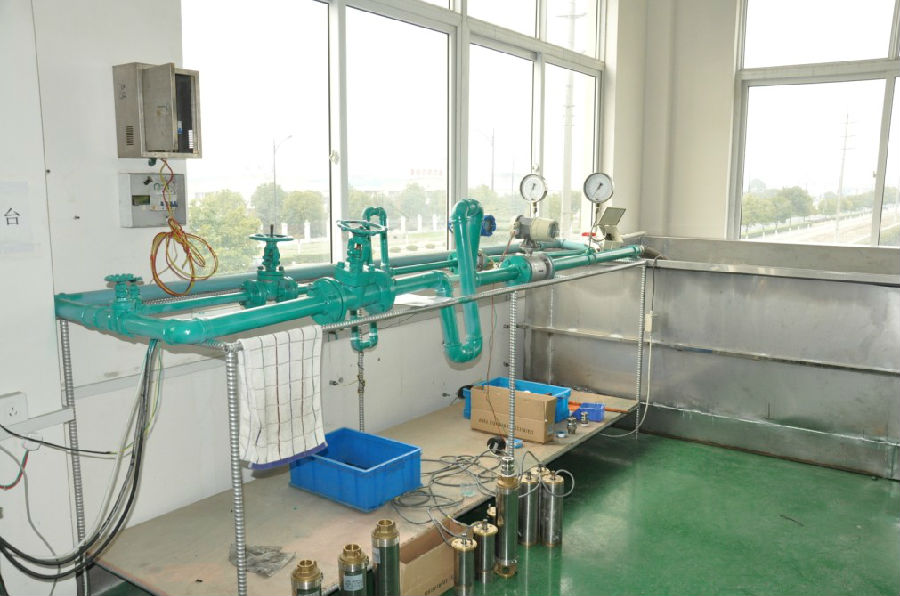
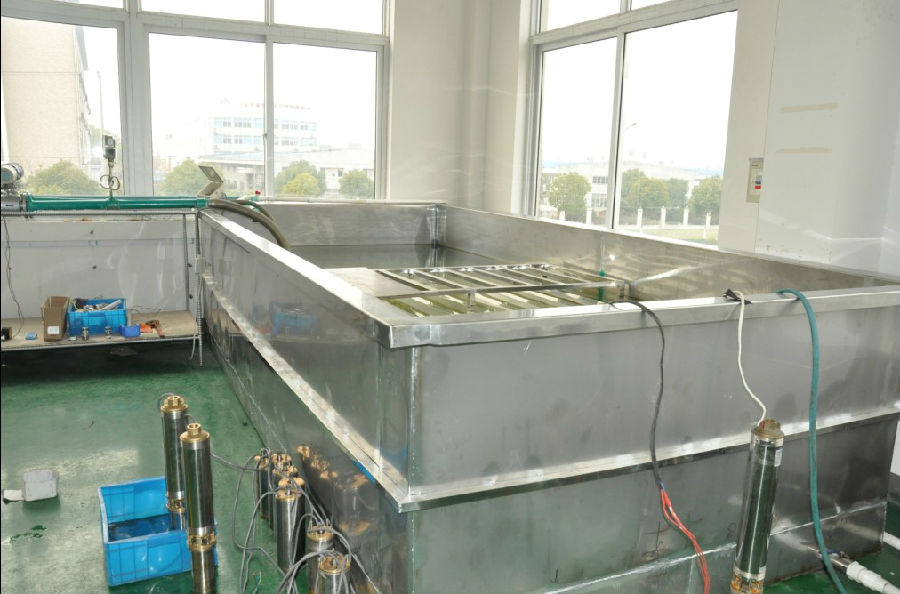
the application:
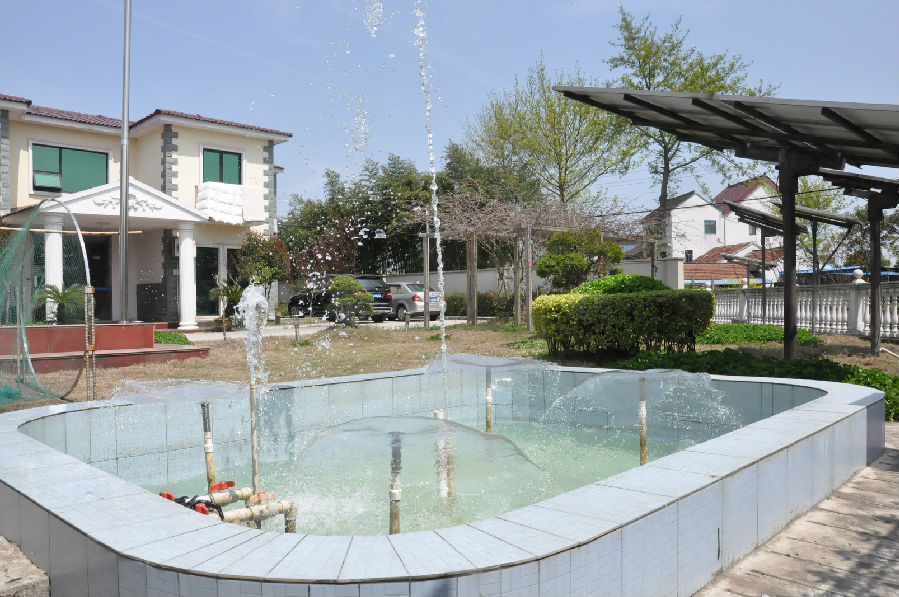
the package:
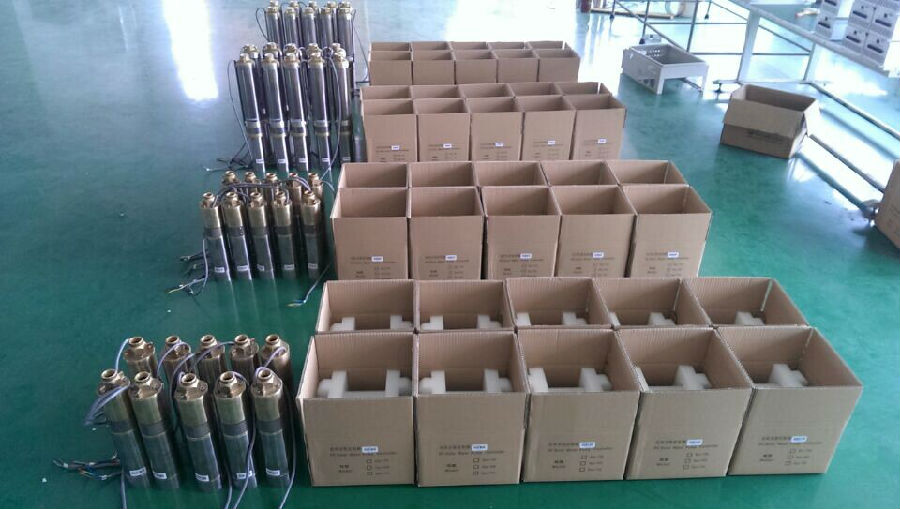
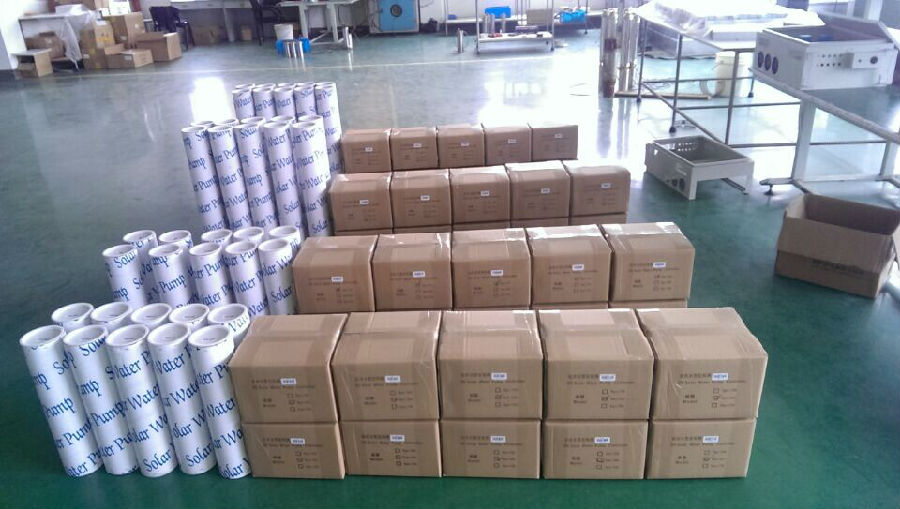
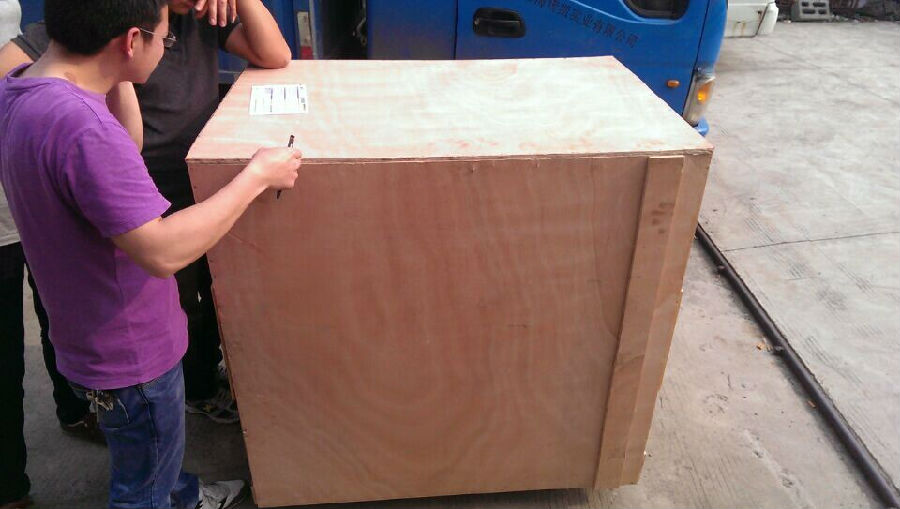
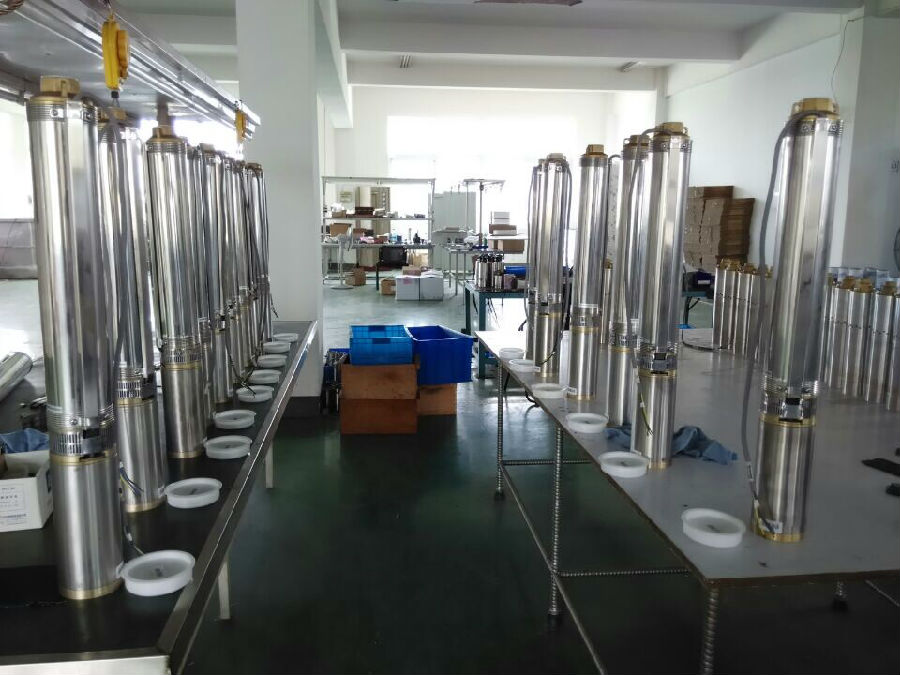
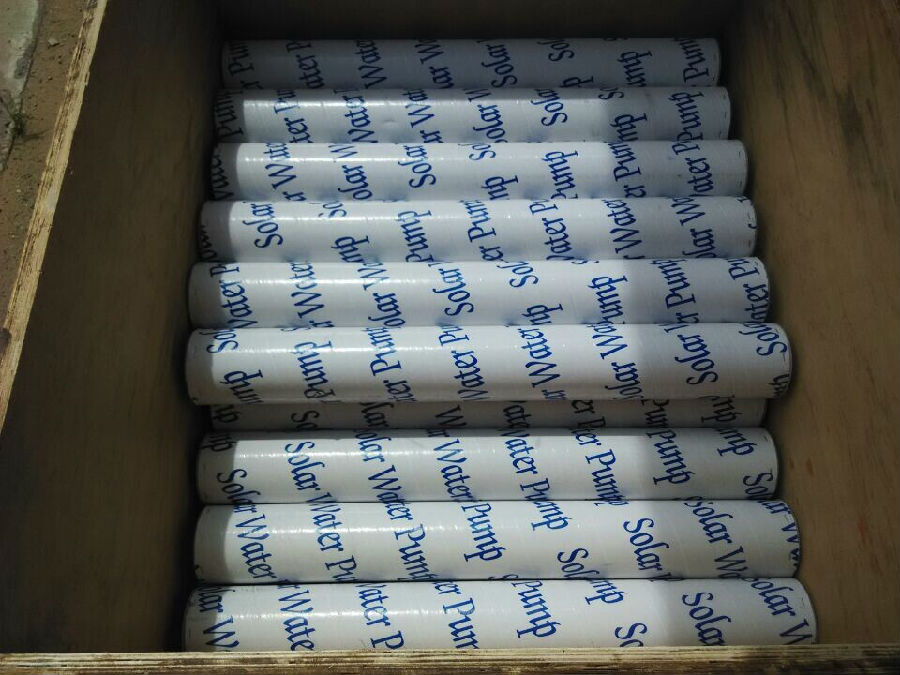
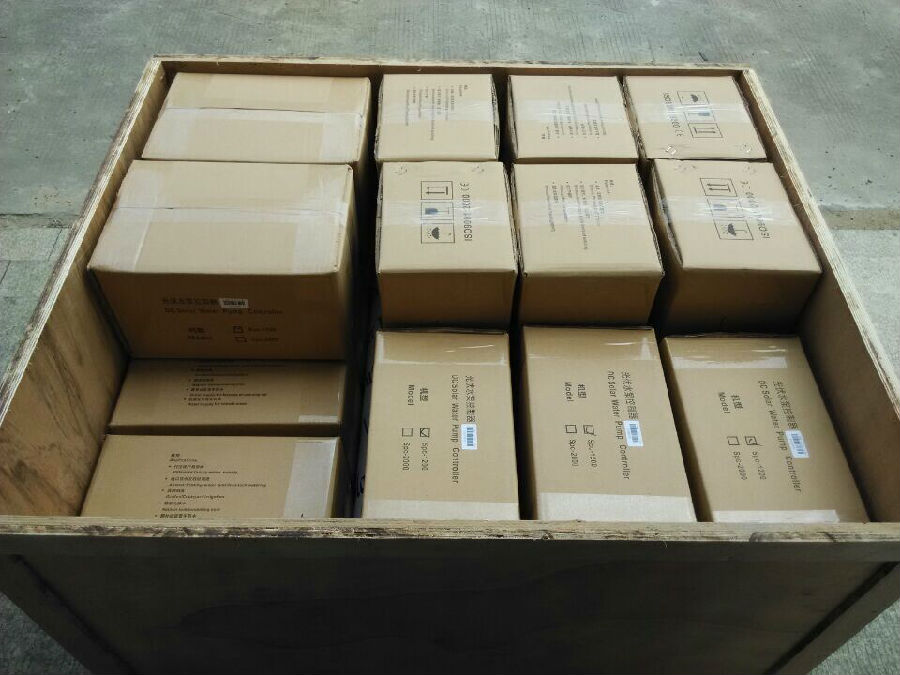
- Q:Are there any limitations to the temperature range a solar pump can operate in?
- Yes, there are limitations to the temperature range a solar pump can operate in. Extreme cold temperatures can cause freezing of the water inside the pump, leading to damage or malfunction. On the other hand, extremely high temperatures can affect the efficiency and performance of the pump's components, such as the solar panels and motor. Thus, solar pumps typically have specified temperature ranges within which they can effectively operate.
- Q:Can solar pumps be used for water supply in military bases or camps?
- Yes, solar pumps can be used for water supply in military bases or camps. Solar pumps operate using solar energy, making them a sustainable and cost-effective solution for water supply in remote locations. They can be easily installed and provide a reliable source of water for various applications such as drinking, sanitation, and irrigation. Additionally, solar pumps are quiet, require minimal maintenance, and can withstand harsh environmental conditions, making them suitable for military operations.
- Q:Can a solar pump be used for water supply in agricultural applications?
- Yes, a solar pump can be used for water supply in agricultural applications. Solar pumps are an efficient and sustainable solution for providing water in remote locations or areas with limited access to electricity. They harness solar energy to power the pump, eliminating the need for grid electricity or fuel. This makes them cost-effective and environmentally friendly options for irrigation, livestock watering, and other agricultural water supply needs.
- Q:What is a solar pump?
- A solar pump is a device that uses solar energy to power a water pump, typically used for irrigation, livestock watering, or domestic water supply in areas without access to electricity. It consists of solar panels that convert sunlight into electrical energy, which is then used to operate the pump and move water from a source to a desired location.
- Q:Can a solar pump be used for desalination of seawater?
- Yes, a solar pump can be used for the desalination of seawater. Solar pumps are commonly used in combination with desalination systems to provide the necessary energy for the process. Solar-powered desalination systems utilize the energy from the sun to power the pump, which in turn drives the seawater through the desalination unit. This process typically involves reverse osmosis or distillation to remove the salt and impurities from the seawater, resulting in fresh drinking water. The use of solar pumps for desalination offers several advantages, such as being environmentally friendly, renewable, and cost-effective in the long run, as they do not require any external power sources. The availability of abundant sunlight in coastal areas makes solar pumps an ideal choice for desalination projects in regions where freshwater scarcity is a pressing issue.
- Q:Can a solar pump be used in remote areas with no access to the power grid?
- Yes, a solar pump can be used in remote areas with no access to the power grid. Solar pumps are designed to operate using solar energy, which means they do not require connection to the power grid. They can be an effective and sustainable solution for providing water supply in remote locations where traditional electricity is unavailable.
- Q:What is the maximum number of hours a solar pump can operate continuously?
- The maximum number of hours a solar pump can operate continuously is dependent on various factors such as the capacity of the solar panels, the battery storage capacity, and the efficiency of the pump system. However, in ideal conditions with sufficient sunlight and battery capacity, a solar pump can operate continuously for 24 hours a day.
- Q:Can a solar pump be used for desalination processes?
- Yes, a solar pump can be used for desalination processes. Solar pumps can provide the necessary energy to power desalination systems, such as reverse osmosis, where seawater is converted into fresh water by removing salt and other impurities. The use of solar energy makes the process more sustainable and environmentally friendly.
- Q:How does the altitude or elevation affect the performance of a solar pump?
- The performance of a solar pump can be significantly influenced by the altitude or elevation. As the altitude increases, the atmospheric pressure decreases, resulting in a lower air density. This decrease in air density has an impact on both the efficiency of the pump's motor and the overall performance of the system. One of the main factors affected by altitude is the power output of the pump. As the air density decreases, the motor of the pump requires more power to maintain the same level of performance. Consequently, this can lead to a decrease in the pump's efficiency and ultimately affect the amount of water that can be pumped. Furthermore, the decrease in air density at higher altitudes also has an effect on the heat dissipation of the solar panels. Thinner air becomes less effective in carrying away the heat generated by the solar panel. Consequently, this can result in an increase in the operating temperature of the solar panel, which in turn reduces its efficiency and has the potential to damage the system. Additionally, the decrease in air density at higher altitudes can impact the performance of the pump's impeller. The impeller relies on air pressure to create the necessary suction force for drawing water into the pump. With lower air density, the impeller may not be able to generate the same level of suction, leading to reduced water flow and pump performance. To overcome these challenges, it is crucial to take into consideration the altitude or elevation when designing and selecting a solar pump system. It may be necessary to opt for a pump with a higher power rating to compensate for the reduced air density. Additionally, proper ventilation and cooling mechanisms should be implemented to prevent overheating of the solar panels. In conclusion, the performance of a solar pump is significantly affected by the altitude or elevation. The decrease in air density impacts the power output of the pump, the heat dissipation of the solar panels, and the performance of the impeller. It is essential to ensure optimal performance at higher altitudes by properly designing and selecting the system components.
- Q:How reliable are solar pumps?
- Solar pumps are highly reliable. They have minimal moving parts, which reduces the chances of mechanical failures. Additionally, they require very little maintenance and are designed to withstand harsh weather conditions. With proper installation and regular checks, solar pumps can provide a consistent and reliable source of water for various applications.
1. Manufacturer Overview |
|
|---|---|
| Location | |
| Year Established | |
| Annual Output Value | |
| Main Markets | |
| Company Certifications | |
2. Manufacturer Certificates |
|
|---|---|
| a) Certification Name | |
| Range | |
| Reference | |
| Validity Period | |
3. Manufacturer Capability |
|
|---|---|
| a)Trade Capacity | |
| Nearest Port | |
| Export Percentage | |
| No.of Employees in Trade Department | |
| Language Spoken: | |
| b)Factory Information | |
| Factory Size: | |
| No. of Production Lines | |
| Contract Manufacturing | |
| Product Price Range | |
Send your message to us
Deepwell solar water pump
- Loading Port:
- Shanghai
- Payment Terms:
- TT OR LC
- Min Order Qty:
- -
- Supply Capability:
- 300 set/month
OKorder Service Pledge
Quality Product, Order Online Tracking, Timely Delivery
OKorder Financial Service
Credit Rating, Credit Services, Credit Purchasing
Similar products
New products
Hot products
Hot Searches
Related keywords









